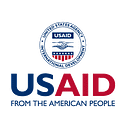Better Care Quality in Jordan’s ICUs
Advanced life support skills are helping nurses save more lives
Nurse Lubna Abu Alhaija is busy working to save lives.
As the COVID-19 pandemic swept over Jordan, Nurse Lubna, the nursing manager at the intensive care unit (ICU) in the surgical and subspecialty hospital at Al Basheer Hospital, stepped up and put her skills to the test against unanticipated challenges.
Abu Alhaija and her colleagues worked tirelessly during the first years of the pandemic. The need for training, notably in advanced cardiovascular life support (ACLS), became imperative.
“When we get a code blue [indicating cardiac or respiratory arrest], we must act in a heartbeat,” she said. “Earlier in the pandemic, we would start CPR, but we had our doubts due to the lack of proper training. Quick decision-making was a challenge. It was all new to us and made us very scared.”
USAID’s Local Health System Sustainability Project (LHSS) stepped up to the challenge. As part of USAID’s global effort to enhance national governments’ responses to health emergencies, LHSS supported the Jordan Ministry of Health in providing ACLS training to medical staff in public hospitals across the country. The LHSS team in Jordan helped procure training materials and equipment, and also supported the training of seven ACLS instructors.
Abu Alhaija and her nursing team gained the knowledge and skills to identify and provide early intervention for respiratory and cardiac arrest. The American Heart Association-certified course covered effective chest compressions, airway management, use of an automated defibrillator, and related pharmacology. Doctors also participated in the training to refresh their skills and stay up to date with the latest advances in ACLS.
According to Nurse Abu Alhaija, the team’s enhanced skill set has bolstered their confidence in performing ACLS. She notes that the hospital sees and manages about four cases of cardiac arrest each day, and although relative mortality data is not available, she has witnessed numerous instances of lives being saved thanks to the team’s capable provision of ACLS. In the past, patients would likely not have survived without such interventions.
Abu Alhaija recounts gripping tales of having to make swift decisions, often under immense pressure — when seconds could mean the difference between life and death.
“With the training, I became more confident in decision-making. Last month, I was passing by the ICU ward when I heard a junior nurse calling for help. I immediately came in and started compressions, while my trained coworkers grabbed the crash cart and proceeded with code blue activation.”
The patient went into sudden cardiac arrest, but the team’s quick and skillful intervention saved his life.
“We’ve always worked according to one algorithm,” she said. “With training, we learned there are other scenarios. We are better at effectively reading electrocardiogram rhythm. And we are now more confidently saving lives.”
In 2022, over 200 health care professionals received the American Hospital Association-accredited ACLS training through LHSS. With the seven instructors trained to provide the course, and with available training materials and equipment in hand, including several specialized mannequins, Jordan’s Ministry of Health is better positioned to continue training into the future.
Abu Alhaija’s mission is to continuously learn and improve along with her staff. “I dream of going one week without a single death. I’m sure it will soon come true rather than remain a dream,” she said.
